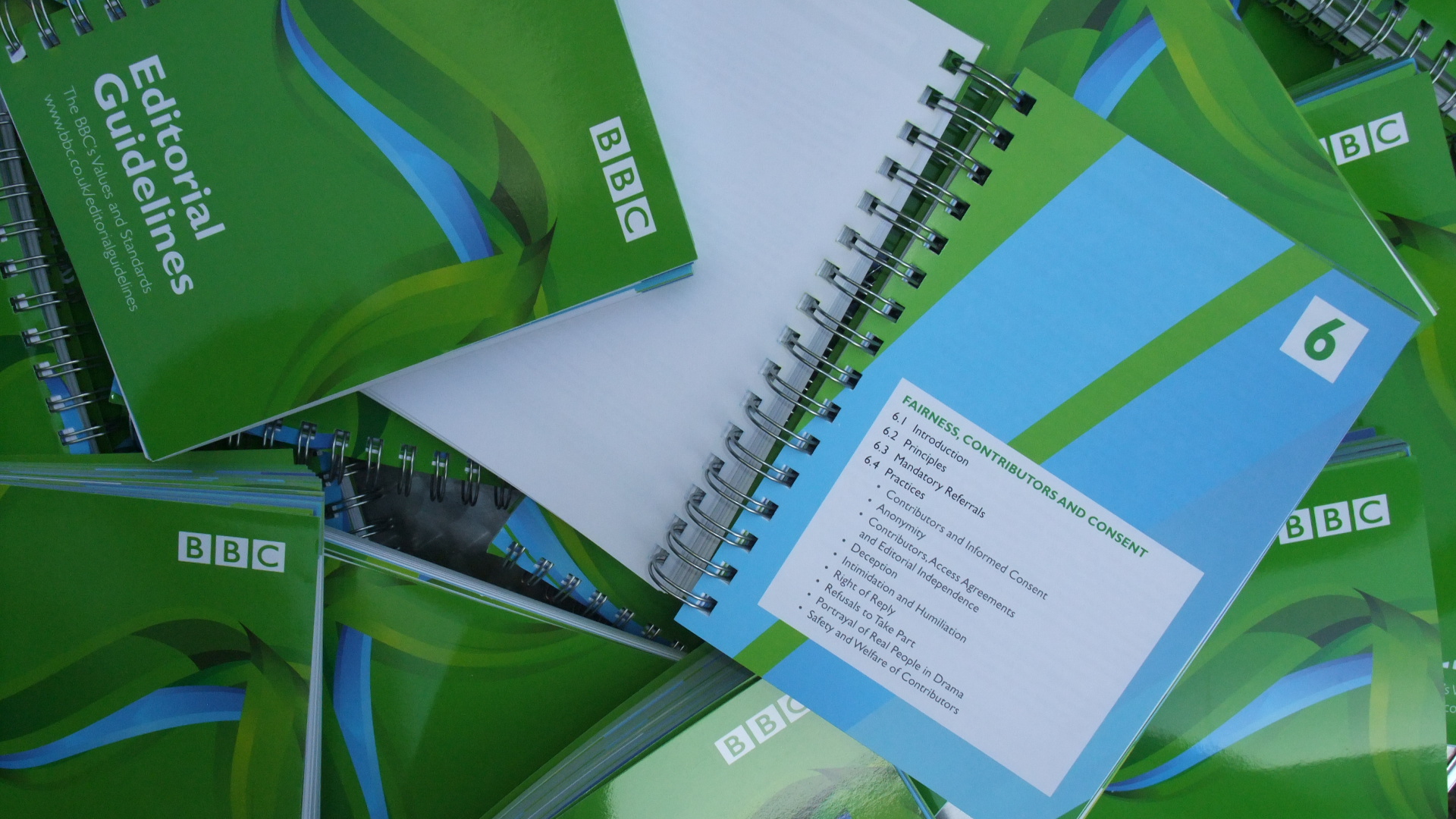Guidelines
Section 6: Fairness, Contributors and Consent
Contributors, Access Agreements and Editorial Independence
Jump to

6.4.13
Contributors sometimes try to impose conditions on us before agreeing to take part. We must not surrender editorial control. Any contractual agreement with a contributor, their agent, or a production company must allow us to ask questions our audience would reasonably expect and tell a fair and accurate story.
If a contributor refuses to give an interview unless questions are rigidly agreed in advance or certain subjects avoided, we must consider carefully whether it is appropriate to proceed at all. If we decide to do so we should make clear on air the conditions under which the interview was obtained.
Access Agreements and Indemnity Forms
6.4.14
Many organisations, ranging from police forces, military organisations and the Royal Household via hospitals and schools to department stores and leisure parks, require the BBC to enter into written agreements in return for facilitating access to their premises or staff. This can be a useful way of formalising the terms under which consent for access or other contributions is granted.
However, it is important to ensure the terms under which access is granted do not compromise the BBC's editorial control or otherwise undermine our editorial integrity. Editorial control requires the BBC, or independents working for the BBC, to retain the right to record material as freely as possible, as well as to edit accurately, impartially and fairly. If unacceptable conditions are imposed we should withdraw from the project.
(See Guidance: Access Agreements and Indemnity Forms)
6.4.15
Any access, filming or recording agreement must be referred to a senior editorial figure, or for independents to the commissioning editor, who may also consult Editorial Policy particularly when the proposed wording compromises the BBC's editorial independence or has the potential to cede editorial control to a contributor or contributing organisation.
Any request from output areas outside BBC News for interviews with, or exclusive appearances by, members of the Royal Family must be discussed with the BBC's Royal Liaison Officer.
When access agreements cover other areas, including rights, re-use and facility fees, Legal and Business Affairs should be consulted.
(See Section 13 Re-use and Reversioning: 13.4.6 - 13.4.12)
6.4.16
Indemnity forms are the legal agreements by which an organisation providing a facility to the BBC clarifies liability if something goes wrong - either during recording or as a result of the broadcast. They may be stand-alone documents or an indemnity clause within a broader Access Agreement. Programme Legal Advice should be consulted before agreeing an indemnity clause.
The BBC has agreed a standard indemnity form with the Association of Chief Police Officers. Copies are available in electronic form on the BBC Editorial Guidelines website. Content producers who are presented with indemnity forms by police forces in England and Wales may sign them only if their wording precisely matches the standard form.
(See Section 7 Privacy: 7.4.37)
(See Guidance: Access Agreements and Indemnity Forms)
Guidance
Mandatory Referrals
Training Modules
Current section
Section 6: Fairness, Contributors and Consent
All
Practices
- Contributors and Informed Consent
- Anonymity
- Contributors, Access Agreements and Editorial Independence
- Deception
- Intimidation and Humiliation
- Right of Reply
- Refusals to Take Part
- Portrayal of Real People in Drama
- Safety and Welfare of Contributors
Related Reading
The BBC is not responsible for the content of external Internet sites.